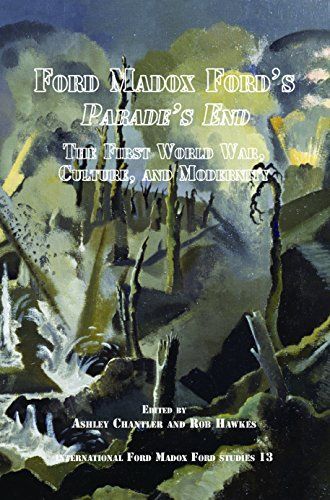
Ford Madox Ford’s Parade’s End The First World War, Culture, and Modernity
The controversial British writer Ford Madox Ford (1873–1939) is increasingly recognized as a major presence in early twentieth-century literature. This series of International Ford Madox Ford Studies was founded to reflect the recent resurgence of interest in him. Each volume is based upon a particular theme, issue, or work; and relates aspects of Ford’s writing, life, and contacts, to broader concerns of his time. Ford is best-known for his fiction, especially The Good Soldier, long considered a modernist masterpiece; and Parade’s End, which Anthony Burgess described as ‘the finest novel about the First World War’, Samuel Hynes has called ‘the greatest war novel ever written by an Englishman’, and which was adapted by Tom Stoppard for the acclaimed 2012 BBC/HBO television series, starring Benedict Cumberbatch and Rebecca Hall. Parade’s End is the subject of the fifteen essays here, by both established experts and new scholars. The volume includes groundbreaking work on the psycho-geography of the war in Ford’s novels; on how the war intensifies self-consciousness about performance and sensation; and on the other writers and artists Ford drew upon, and argued with, in producing his post-war masterpiece.